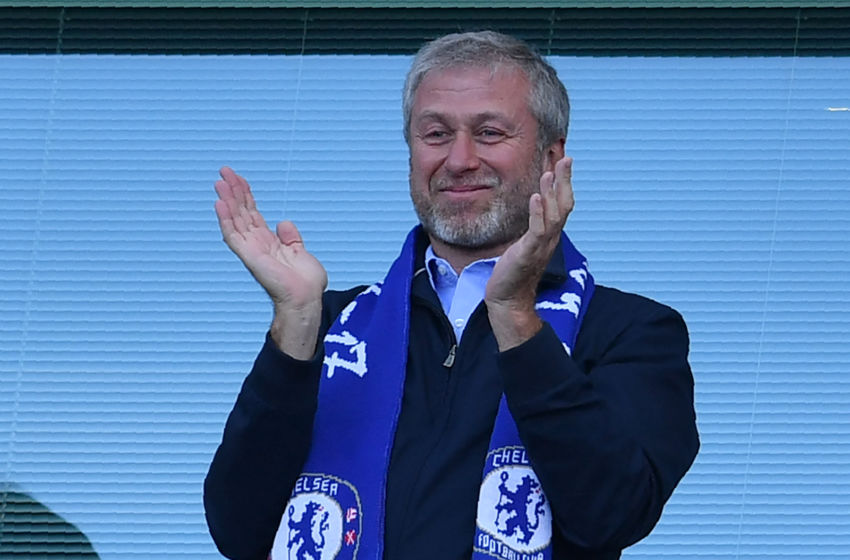•I do not want the owner of my club to constantly take political stands, but what is happening in Ukraine is not an ordinary situation
By Daniel Finkelstein
A few years ago, attending a Chelsea match in my seat in the Lower West Stand at Stamford Bridge, I took with me a Times reader who had bid in a charity auction to accompany me to a game. At the end of the match, another José Mourinho victory, the Chelsea anthem Blue is the Colour blared out of the speakers.
“Do they play that when you lose?” she asked me. I had to reply that it had been such a long time that I honestly couldn’t remember.
The past 20 years as a Chelsea fan have been an extraordinary experience. Having been a supporter since I was seven, and become used to relegation and early cup exits, the parade of trophies has been incredible. I won’t pretend that I haven’t enjoyed it all immensely.

Winning games and trophies became a habit at Chelsea in the era of Mourinho and AbramovichDARREN WALSH/REUTERS
But like many other (though obviously not all) Chelsea fans, I think the decision by Roman Abramovich to sell the club was inevitable and right. He could not carry on.
At the weekend, when the club announced its odd “stewardship” proposal for its charitable foundation, a political friend sent me a text that read “Clever?”, and I responded “No”. Because the moment I saw it, I realised it wouldn’t work and appreciated it would mean that Abramovich had to sell the club.
“Stewardship” meant nothing legally. It was simply political. It represented, above all, an acknowledgement that the club would have to condemn Vladimir Putin’s invasion of Ukraine, and that this way the owner wouldn’t have to. That is why the stewardship announcement came first, then the statement on Ukraine, then the flowers for Ukraine on the pitch. It couldn’t be in a different order.

The likes of Drogba became club legends during Abramovich’s trophy-laden tenureMIKE EGERTON/PA
Even then, with the status of the new arrangements unclear, the statement was inadequate, talking of the “situation” in Ukraine rather than a Russian invasion.
For Chelsea to be owned by someone who for any number of reasons — commitments, old ties, financial interests — cannot condemn the invasion, is morally and politically impossible. I don’t expect football teams to be political parties. I go to games, and watch obsessively on television, partly to get away from politics. At challenging political moments I have been buoyed up by a last-minute header from Didier Drogba, or that one, during the lead-up to the Brexit referendum, that Eden Hazard scored against Tottenham Hotspur.
So Abramovich had to make a choice. Which world did he want to live in? And his response — the stewardship response — showed that he couldn’t or wouldn’t turn against Putin. Which made his continued tenure at Chelsea impossible.
He will be very hard to replace as owner. To thrive as a very top club requires an owner with virtually unlimited funds. To have that sort of money and also be a passionate fan, as Abramovich has been, will be hard to replicate.
It has sometimes led to bizarre decisions. The sacking of Carlo Ancelotti, for instance, was absurd. But it was quite enjoyable being led by someone with the impetuosity of the fans in the row in front of me at the Bridge.
I have also been hugely grateful for the role that Abramovich has played in fighting antisemitism, a campaign that might flounder under new owners.
But it can’t be helped. Ukraine is in a struggle for its existence and the free world is in this struggle too. It’s not a moment to be self-indulgent. And in any case, a fan needs to be able to be proud of their club. Its soul matters too. It’s not only that there are more important things than football. It’s that football is about more than football.
Credit | The Times

